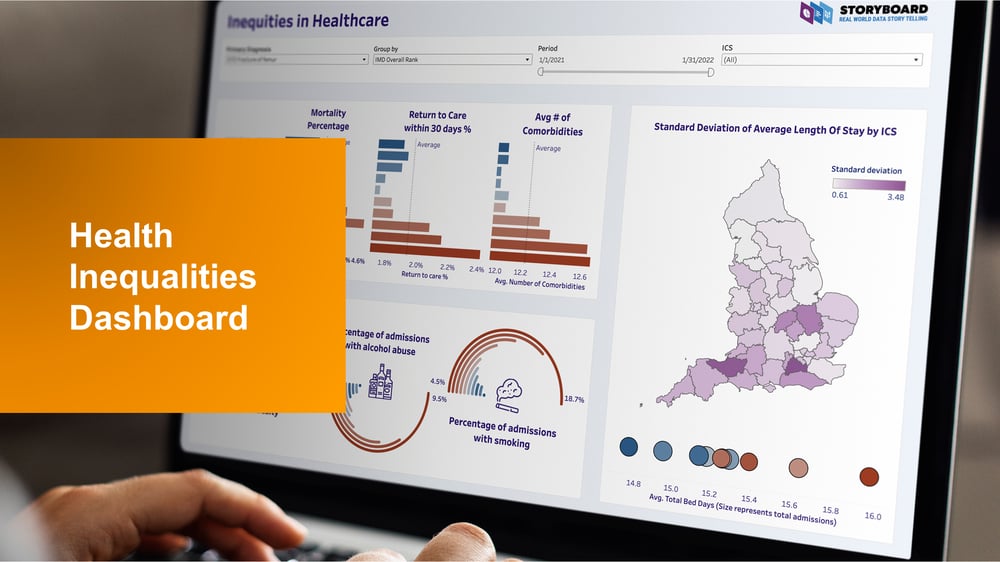Health equity is crucial to ensuring that all individuals have access to essential care. The COVID-19 pandemic demonstrated how some groups, such as Black, Asian, and minority ethnic (BAME) communities, and those living in deprived areas, were disproportionately affected by the virus. However, while COVID-19 drew attention to these healthcare disparities, they have existed for decades.
In recent times, regulatory bodies have put tackling health inequities at the front line of their agendas, recognizing the crucial role real-world data (RWD) play in answering the questions that help us understand and reverse current and future health inequity, and expanding the reach of new technologies to underserved patient populations.
At CorEvitas, part of Thermo Fisher Scientific, we are committed to working hand in hand with our partners to generate high-quality, fit-for-purpose real-world evidence (RWE) that not only recognizes and accounts for health inequities in development and assessment, but also quantifies its impact on healthcare outcomes. Together, we can create a more equitable healthcare system that ensures access to essential care and a deeper understanding of the many factors associated with the costs of disease for all individuals, regardless of their background or circumstances.
Our work supporting health equity

Impact of gender, ethnicity, and social deprivation on access to surgical or transcatheter AVR in aortic stenosis: A Retrospective Database Study in England
A retrospective database study in England that assessed gender, ethnicity, and deprivation-based differences in provision of aortic valve replacement (AVR) for adults with aortic stenosis (AS).

In our sights
In this article, Dr Caoimhe Rice explores the future of retinal healthcare, and explores how to ensure it incorporates healthy equity.

Differences in inequalities of uterine cancer treatment before and after COVID-19 in England
Dr Jennifer Davidson assesses the changes in uterine cancer treatment before and after the emergence of COVID-19.

Supporting an Integrated Care System to reduce inequalities within breast cancer
Our case study examines how we supported an ICS to reduce inequalities within breast cancer, using the Health Inequality Dashboard, part of the Vantage® RWE Platform.

Outcomes of Biologic Use in Asian Compared with Non-Hispanic White Adult Psoriasis Patients from the CorEvitas Psoriasis Registry
This study compared the 6-month effectiveness of biologic therapy between Asian and white plaque patients with psoriasis in the CorEvitas Psoriasis Registry.

WHITEPAPER: Utilizing RWD to uncover health inequalities in type 2 diabetes
Utilizing CorEvitas' Vantage® RWE platform, our whitepaper demonstrates how inequalities can be identified in type 2 diabetes using the English Hospital Episode Statistics (HES) dataset and measuring HCRU in terms of hospital admissions.

Improving diversity in study participation: Patient perspectives on barriers, racial differences, and the role of communities
Qualitative research was conducted to identify the potential motivators and barriers to study participation across different races and ethnicities-- preferred delivery of education and information to support healthcare decision-making and the role of the community.

Racial/ethnic differences in biologic treatment patterns among patients in the CorEvitas Psoriasis Registry
This study assesses biologic discontinuation and switching rates after six months of therapy among psoriasis patients of different racial/ethnic backgrounds in the CorEvitas US/Canadian Psoriasis Registry.

Similar response to biologic therapy across racial and ethnic groups among patients with psoriasis enrolled in the CorEvitas Psoriasis Registry
This study uses data from the CorEvitas Psoriasis Registry, an observational cohort of patients evaluated in dermatology clinics, to better understand the response to biologics across racial/ethnic groups.

Racial and Ethnic Differences in Sociodemographic and Treatment Characteristics Among Patients With Atopic Dermatitis in the United States
We compared differences in AD disease and treatment characteristics (including systemic treatments) among self-reported racial/ethnic groups in real-world AD patients who are candidates for, or currently on, systemic therapy.

Societal Burden of Sickle Cell Disease in the UK: Empirical estimates of productivity loss and loss of future income using real-world evidence
We estimate productivity loss and loss of future income utilizing RWE: the English Clinical Practice Research Datalink (CPRD) linked with Hospital Episode Statistics (HES), and mortality data from the Office of National Statistics (ONS) death register.

Disparities in Burden of Disease in Patients with Rheumatoid Arthritis Across Racial and Ethnic Groups
Using data from CorEvitas' Rheumatoid Arthritis registry, this study examines differences in disease burden and change in clinical outcomes over time across racial and ethnic groups.

The propensity to receive a HSCT in DLBCL patients based on sex, ethnicity and deprivation
Utilizing linked real-world datasets, we estimate the odds of receiving a HSCT among a representative cohort of DLBCL patients in England.

A demographic description of women with uncomplicated urinary tract infection in England: a primary care electronic health record and notes review
This poster describes the age, ethnicity, and treatment of women with uncomplicated urinary tract infections (uUTIs) using electronic health records (EHR) and a notes review for patients from a large primary care network, covering 32 practices in southeast England.

Disparities in Burden of Disease in Patients with Rheumatoid Arthritis Across Racial and Ethnic Groups
Using data from CorEvitas' Rheumatoid Arthritis registry, this article examines differences in disease burden and change in clinical outcomes over time across racial and ethnic groups.

Study findings suggest racial and ethnic disparities in psoriasis treatment
A study using data from CorEvitas' Psoriasis Registry found that Black patients with psoriasis are less likely to switch biologic therapies than patients in other racial and ethnic groups, indicating possible differences in treatment patterns.
IDE is embedded in every CorEvitas RWE solution. And it starts with our people.
We have taken many steps to ensure that inclusion, diversity, and equity are embedded into who we are and how we do business, both internally and externally.
Stunning, visual real-world data storytelling
The Health Inequalities Dashboard, part of CorEvitas' Vantage® RWD platform, interrogates Hospital Episode Statistics (HES) data to provide powerful analyses of patient cohorts in England.
The dashboard’s rigorous health inequality analysis helps you quantify health inequalities for a specific disease, identify the groups disproportionately affected, and understand local challenges. Request a demo today to find out how we can help you support your national and local healthcare stakeholders in providing quality, evidence-based care equal to the patient populations they serve.

-
Quantify health inequalities for a specific disease
-
Understand the local challenges
-
Identify the groups disproportionately affected
-
Support HCPs in understanding health inequality
-
Help support the delivery of quality, evidence-based care
How can we help you?
Our gold-standard RWE solutions provide the life sciences industry with the objective data and clinical insights needed to bring safe, effective treatments to market.
With over 150 epidemiologists, statisticians, and pharmacovigilance experts on staff and 20 years of experience in syndicated longitudinal registries, CorEvitas is expertly placed to provide the scientific guidance that helps support even the most complex evidence generation.
Talk with our team to discover how we can tailor a solution to meet your unique needs - from discovery through post-market.


